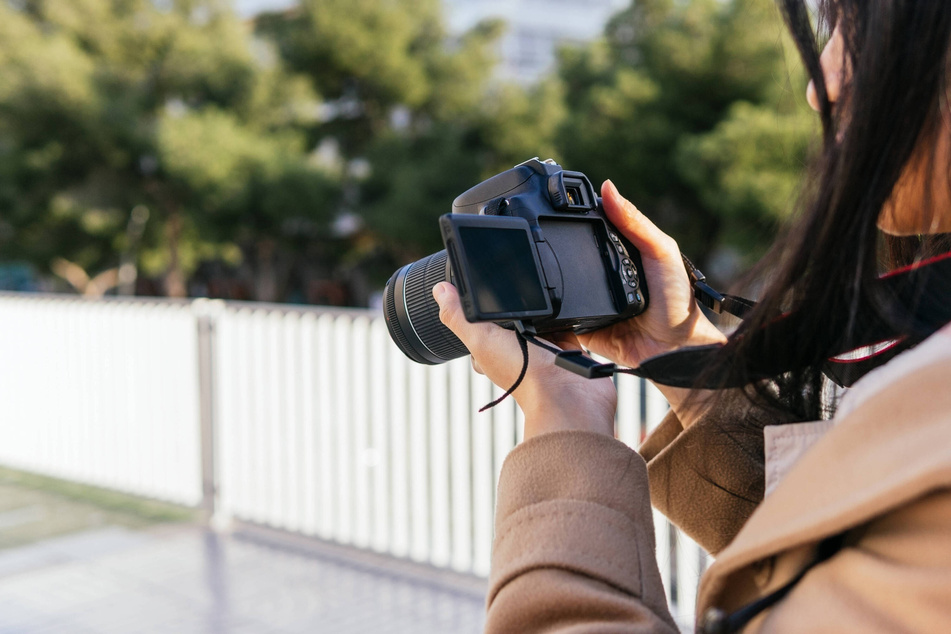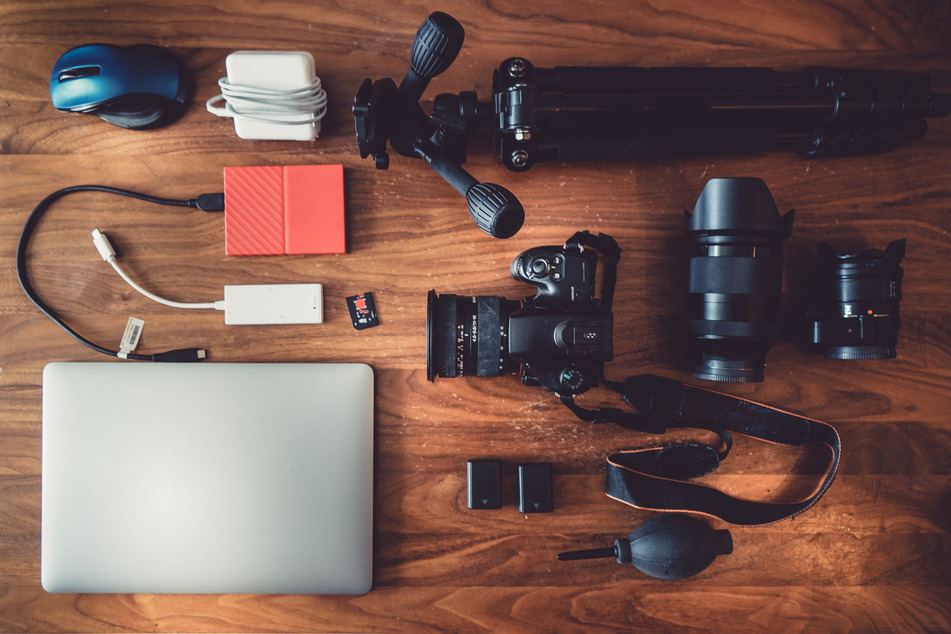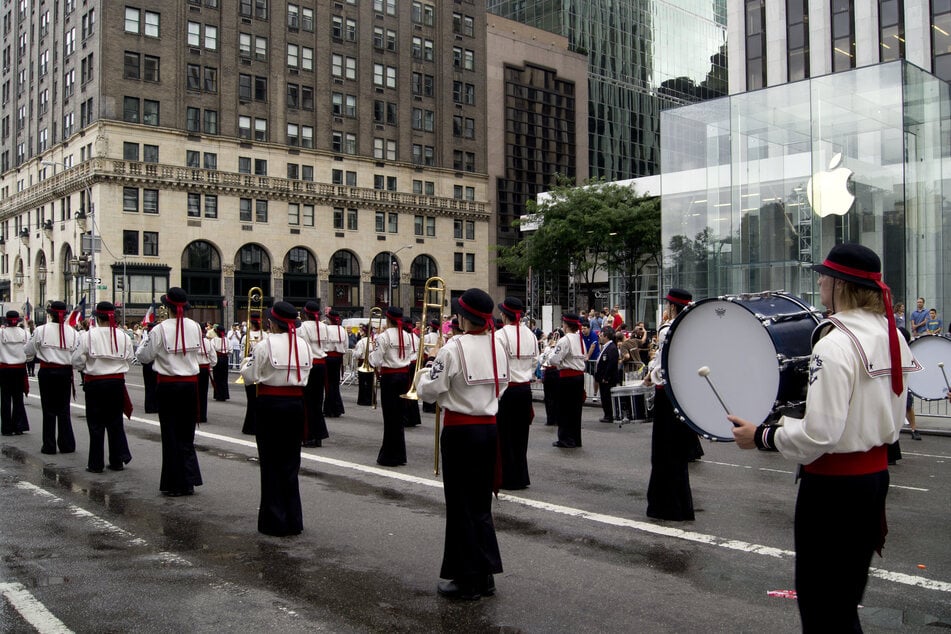Picture perfect: A beginner's guide to buying your first digital camera
Looking to get into digital photography? This guide will help you navigate buying your first camera, so you can start taking picture-perfect photos in no time.

Have you ever seen a photo that literally took your breath away?
Maybe it was a photo of you taken by a friend that you felt captured your best qualities. Or perhaps it was a photo of someone you love – like your child, a pet, or your best friend – that simply brings a smile to your face every time you see it.
Or, it could be a photo of something that speaks to you and tells some sort of story on a deeper level.
This is the power of photography: creating images that leave everlasting impressions on viewers. It truly is an art form.
Everyone with a smartphone considers themselves a photographer to a certain degree. While this is true given the advances in technology over the last few years, it's still a limited experience.
Digital SLR and mirrorless cameras have become the norm for anyone willing and ready to take their photography to the next level. Replacing film, the use of digital photography has streamlined the process of editing, printing, and sharing your work with the world.
Whether you're interested in taking on photography as a hobby or a profession and are unsure of where to start, this little guide will help you pick your first digital camera.

Where would you like your photography journey to take you?

Before we even begin window shopping, it's good to ask yourself two pertinent questions.
First, are you interested in taking on photography as a hobby, or do you aim to begin a career with it?
Photography can be an expensive undertaking, with some camera bodies and lenses respectively costing thousands of dollars.
Fortunately, the technology has been rapidly progressing, making more affordable models easily accessible.
If you just plan to take photos for yourself – whether it be for scrapbooking or creating beautiful memories – then a high-end, professional camera isn't necessary.
But if your ambitions include taking photos for other people, especially those who are down to pay for them, then a willingness to spend an extra buck will definitely go a long way.
Secondly, at this very moment, do you consider yourself a beginner, or someone with intermediate experience?
More expensive cameras come equipped with technologically advanced features that sometimes present a learning curve. Without previous knowledge of operating digital cameras, all the bells and whistles the higher-end models have to offer can seem daunting and confusing.
There's no shame in starting out with something geared towards beginners so you can learn the ropes before making a larger, long-term investment.
Having a good idea of where you want your photography journey to take you will make it easier to decide on the best camera for your needs.


Understanding lenses and the body of a digital camera

Gaining a solid understanding of the different parts of a camera and how they work will help make looking for the right fit – and using one – a more rewarding experience.
So let's take a moment to go over the basics – beginning with the lens.
The bread and butter of every great camera, the lens controls the aperture - a circular opening that is widened or narrowed to control the amount of light that will pass through to the camera's sensor.
The aperture also dictates the depth of field of your photos or the amount of your image that appears sharp.
The body of the camera contains the digital sensor that captures your image and relays it back to you via the viewfinder or an attached LCD screen.
The power, or amount of pixels, in a sensor is measured in megapixels (MP). The MP number of a camera plays a big role in its price tag. Typically, the higher the MP count, the more expensive the camera body itself will run.
For beginners, 24 MP is a great starting point. But for those with more professional ambitions, a higher MP can help your photos stand out amongst the rest.
Most of the time, bodies and lenses are sold separately. If you are new to digital photography, most brands offer bundles with a body and a standard zoom lens that are on the cheaper end and will help you get your feet wet.
If you are interested in something that caters to specific needs, such as macro lenses that can take photos of tiny subject matters, you'll want to do some further research.


Accesories you may need with your digital camera

Finding the right accessories is a big part of the fun of becoming a photographer. No matter what happens or where your adventures lead, you should always be prepared. This is where a good collection of accessories becomes paramount.
A good, solid camera bag is an absolute must. Every seasoned photographer has a story about damaging a camera, whether it's from poor weather or someone bumping into them, sending their investment crashing to the ground.
A camera bag should be able to house and protect everything you'll need when snapping shots, and it should allow for easy accessibility of lenses and other accessories.
While shoulder bags can achieve this, a larger bag, such as a backpack, can give you more space for clunky items such as a laptop or a tripod.
Depending on your shooting style and the type of scenes you tend to frequent, a good attachable flash may also be a necessity.
Two more items that no photographer should go without are an extra battery pack and a few spare SD memory cards. Both tend to run out or malfunction at the worst times possible, but backups can help evade such problems.
Smaller components could be added to your shopping list, such as filters. These can be fairly cheap and come in all sorts of colors and styles, allowing you to easily change the look and feel of your photos. Other accessories to consider include a lens hood to protect from direct sunlight ruining your shots,
When you have everything gathered, consider organizing your bag in a way where you will know exactly where everything is, so things can be retrieved quickly.


Beginners guide to photography: Conclusion
Above everything, photography should be fun, as should the process of buying your first camera. Try not to stress about how much you need to spend or whether you are making the "right" choice or not. Any photographer that's been doing it long enough has probably jumped ship to another model or brand a few times, or upgraded to a better model of their favorite camera. The technology is rapidly evolving, as will your style and preferences.
There are also a ton of options to fulfill any of your photography needs. Learn to frequent internet forums where other photo enthusiasts share their experiences and insights. Study examples of photos taken with the camera you have interest in to get an idea of what your photos will look like.
And finally, do as much research as you can. While cell phone cameras offer a basic point-and-shoot setup, high-end digital cameras have numerous options and settings that are only worth the expense if you learn how to thoroughly use them correctly. Websites such as Photography Life offer countless resources to help you grow your knowledge of photography.
Jumping into photography may seem daunting in the beginning, but it will easily be one of the most rewarding hobbies you will pick up in life. Get excited, because adventure awaits you!
Cover photo: TAG24/Rey Harris
